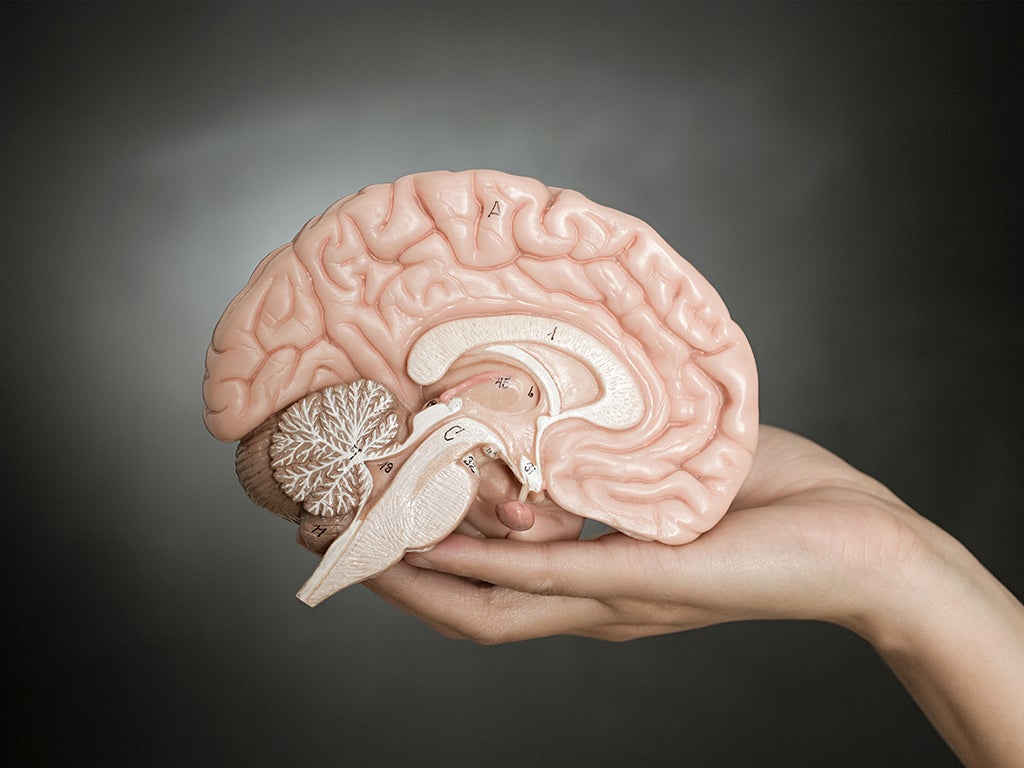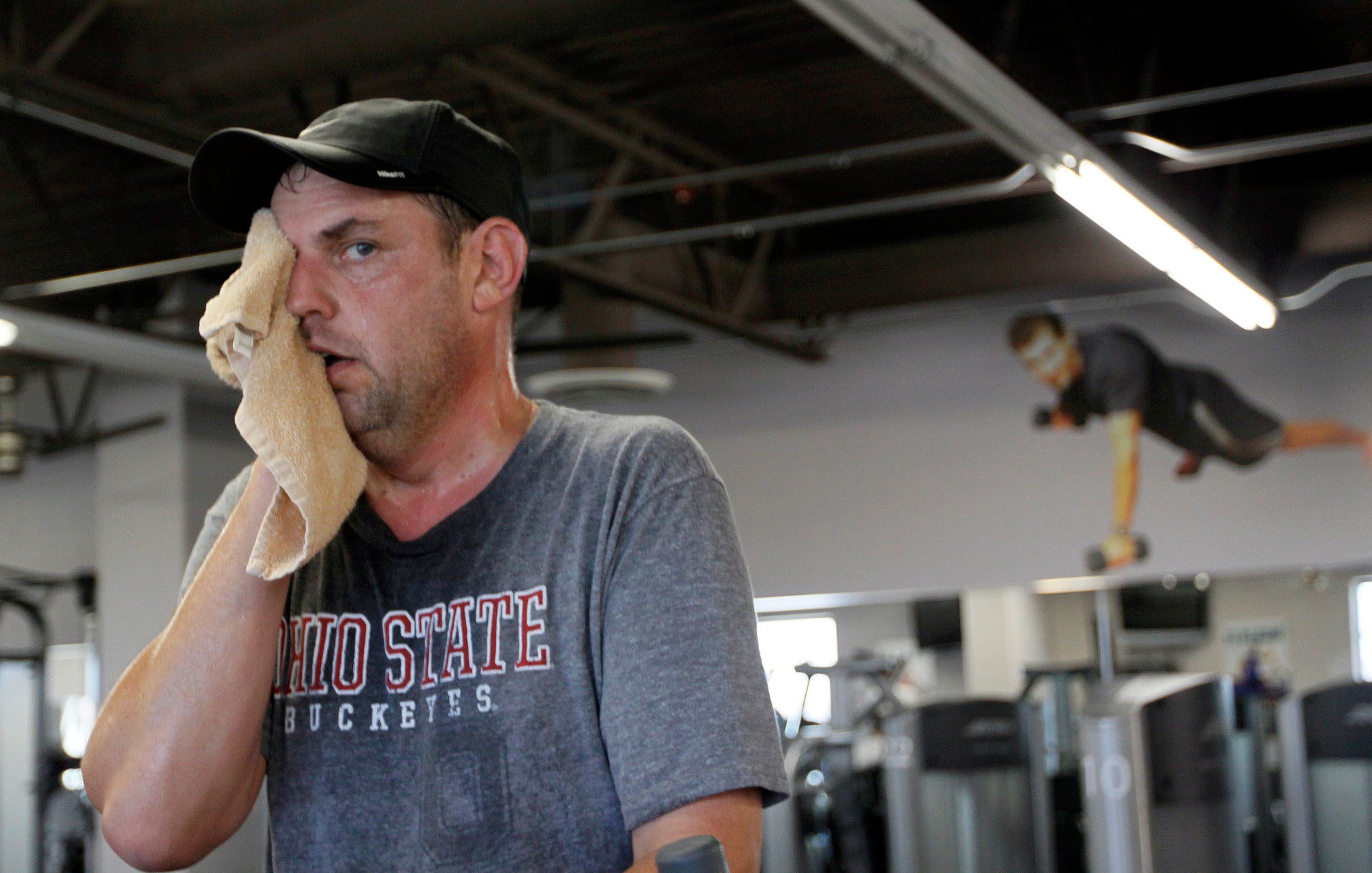Forgetful? Distracted? Foggy? How to keep your brain young
It's downhill after your mid-twenties, but there are plenty of fun things we can do to improve cognitive health

Last week Public Health England said they are working on a new tool to tell patients their brain age, as part of the fight against dementia.
As far as structure of your grey matter is concerned, once you’re past the mid-twenties, it’s downhill all the way - your brain begins to shrink.
Structural decline is inevitable and an inescapable fact of life. If we lived to be 150 years old, we’d all eventually display signs of Age Related Cognitive Decline (ARCD) as a result of the natural processes of brain ageing. Being around that long would mean that at some point we would all have succumbed to the forgetfulness, distractedness and compromised problem solving that characterises ARCD.
ARCD may be an inevitable thing in the long run but you’ll be pleased to hear that there are several things that you can start doing right now to help slow this process down.
Reduce free radicals

If not kept under control, a free radical is to the structure and fabric of your brain what a bull is to a china shop. Having gained access to your brain mainly through cigarette smoke, exhaust fumes and fatty foods, the best way of counteracting their damaging effects is simply by reducing intake of red meat and eating plenty of fresh fruit and vegetables – the oldest and still the best readily available sources of brain tissue protecting anti-oxidants. Anti-oxidants mop up the free radicals before they can cause any damage. So make sure you do your 5+ portions of fruit and veg a day for your brain’s sake.
Take your brain for a walk

A litre of blood passes through you brain every minute. This is just as well because there’s no space for storage in the brain so it must receive a constant supply of nutrients to keep it working properly. Any interruption to the flow of blood to a certain chunk of the brain can lead to Silent Cerebral Infarct at best or a full blown stroke at worst. Making sure that the pump that pumps all that blood – your heart – is in good working order is a good first step; regular exercise is the best way to keep the heart strong. It also helps to ensure that the blood vessels transporting the blood remain clear of obstructions - vital to allow that oxygen-packed, nutrient rich blood to reach every part of your brain, every minute of the day.
Regular moderate to intense exercise is well known to keep brains functioning better for longer. And the most likely explanation is that by keeping moving, as opposed to spending most of the day sedentary, you keep your heart and brain’s blood vessels flexible so they can always deliver the goods where they’re needed most.
Build cognitive reserve through neuroplasticity (get some hobbies)
What sets your brain apart from today’s supercomputers is its ability to physically change to meet new challenges. By consistently challenging it with fresh mental activities, your brain will be continually forced to restructure, rewire and build new connections to cope with the new demands placed on it.
There are four hobbies that the Einstein Ageing Study observed were associated with a delay in the onset of dementia. These activities, if carried out regularly, intensively and over long periods of time are thought to help build “Cognitive Reserve” – which appears to delay the transition of ARCD into dementia by several years:
Learn a musical instrument

Playing an instrument involves manipulations of an object with various body parts (e.g. fingers, lungs and mouth for most wind instruments) to produce tightly coordinated and rhythmically precise sounds. Even reading the music involves decoding the marks on a piece of paper that denote the pitch, onset, duration and style of each note and holding the sequence in mind for long enough to execute the correct muscle movements. All whilst simultaneously listening to the sounds you produce yourself in relation to those produced by the other players in your band to establish that the desired overall effect is created. Great mental gymnastics!
Play chess

Chess requires potential moves of both players to be imagined and held in mind so that further moves can be thought through. Opportunities and pitfalls of each potential sequence of moves must be analysed to select the best strategy. The more moves in advance a person tries to plan, the harder the brain areas in their Frontal and Parietal Lobes that support working memory are pushed try to keep in mind where all the pieces would stand after each imagined move. Improving your working memory can also have a positive impact on fluid intelligence. So playing chess might even make you smarter too!
Dancing

Dancing is a quintessentially social event. Maintaining regular social contact with other people is known to have a powerful positive impact on mental health and wellbeing by making individuals feel connected to their community. Most of the dance styles in question require careful coordination of your own movements with those of your dance partner, which must all be synchronised to the musical beat. Physical contact triggers the release of oxytocin into the bloodstream. This neurohormone induces feelings of trust, comfort and a sense of belonging; boosting that sense of social connectedness and wellbeing.
Reading

Reading involves converting strings of letters into words, words into sentences and keeping the meaning of one sentence in mind in light of those preceding and following it. Images must be conjured up in the mind’s eye and sounds in the mind’s ear. Previous chapters of whatever book you happen to be reading must be brought back to mind in order to interpret new events and future possible scenarios must be imagined to anticipate likely outcomes. A dynamic impression of all the characters’ personalities is assembled whilst the trajectory of the plot unfolds.
Whether you’re going to play an instrument, have a game of chess, get up and dance or enjoy a good book, the key to inspiring your brain to change is to do it regularly, intensely and over long periods. The great news is that these are all fun activities that anyone can do to ensure they maintain a healthy brain for as long as possible.
Dr Jack Lewis & Adrian Webster are authors of Sort Your Brain Out, available on Amazon and WHSmith
Join our commenting forum
Join thought-provoking conversations, follow other Independent readers and see their replies
Comments